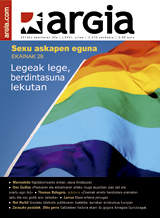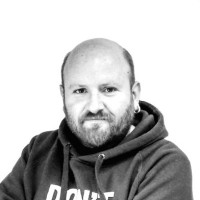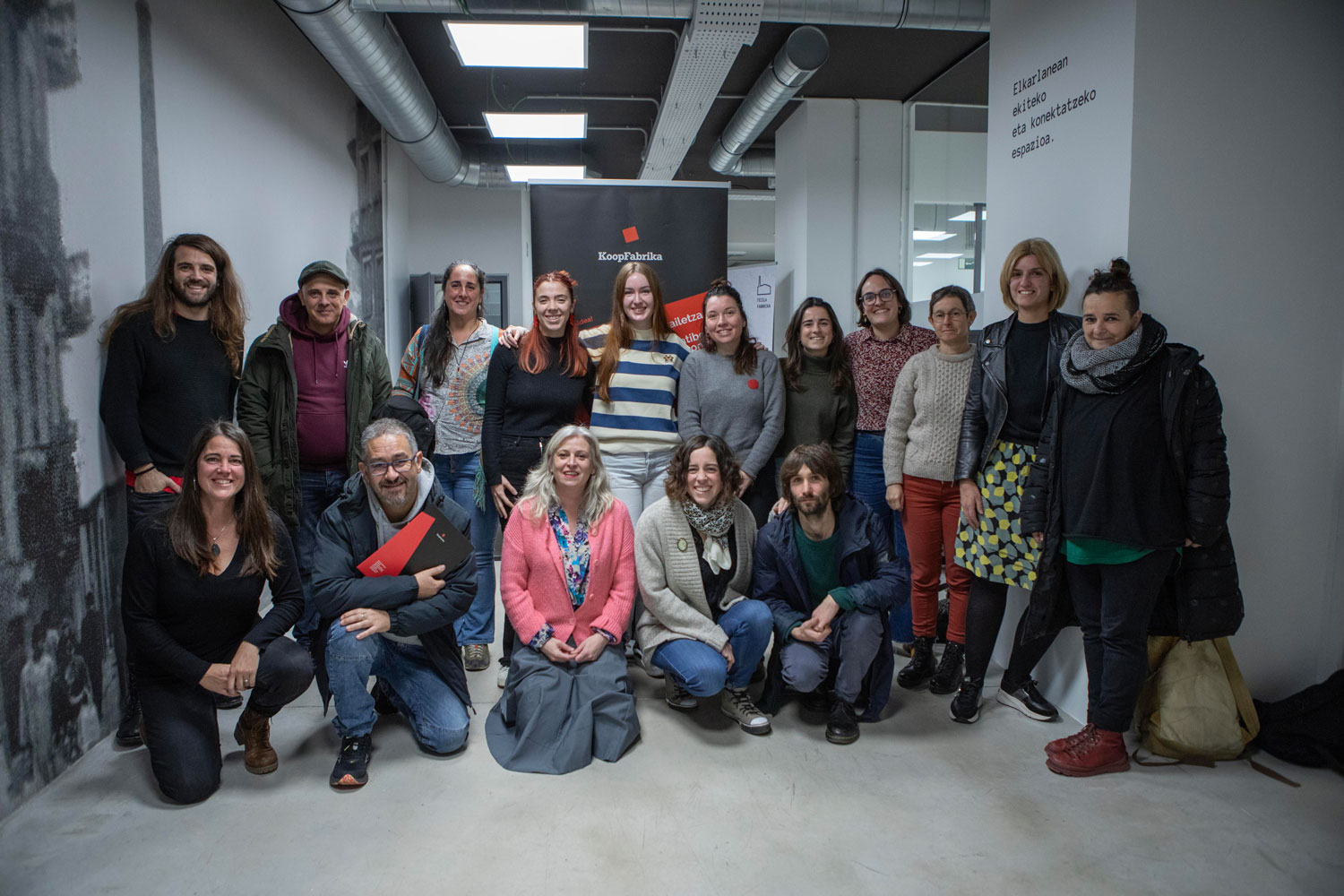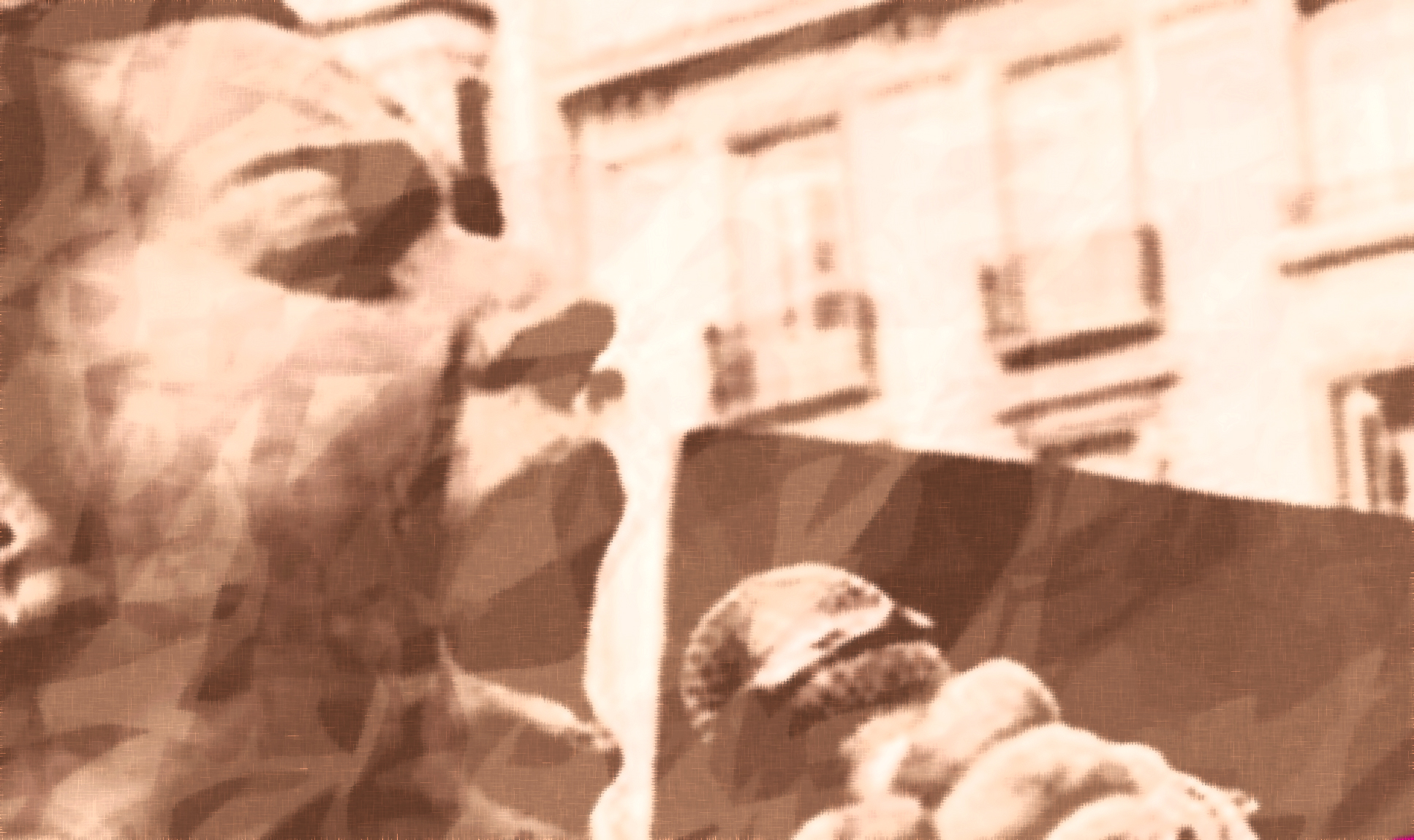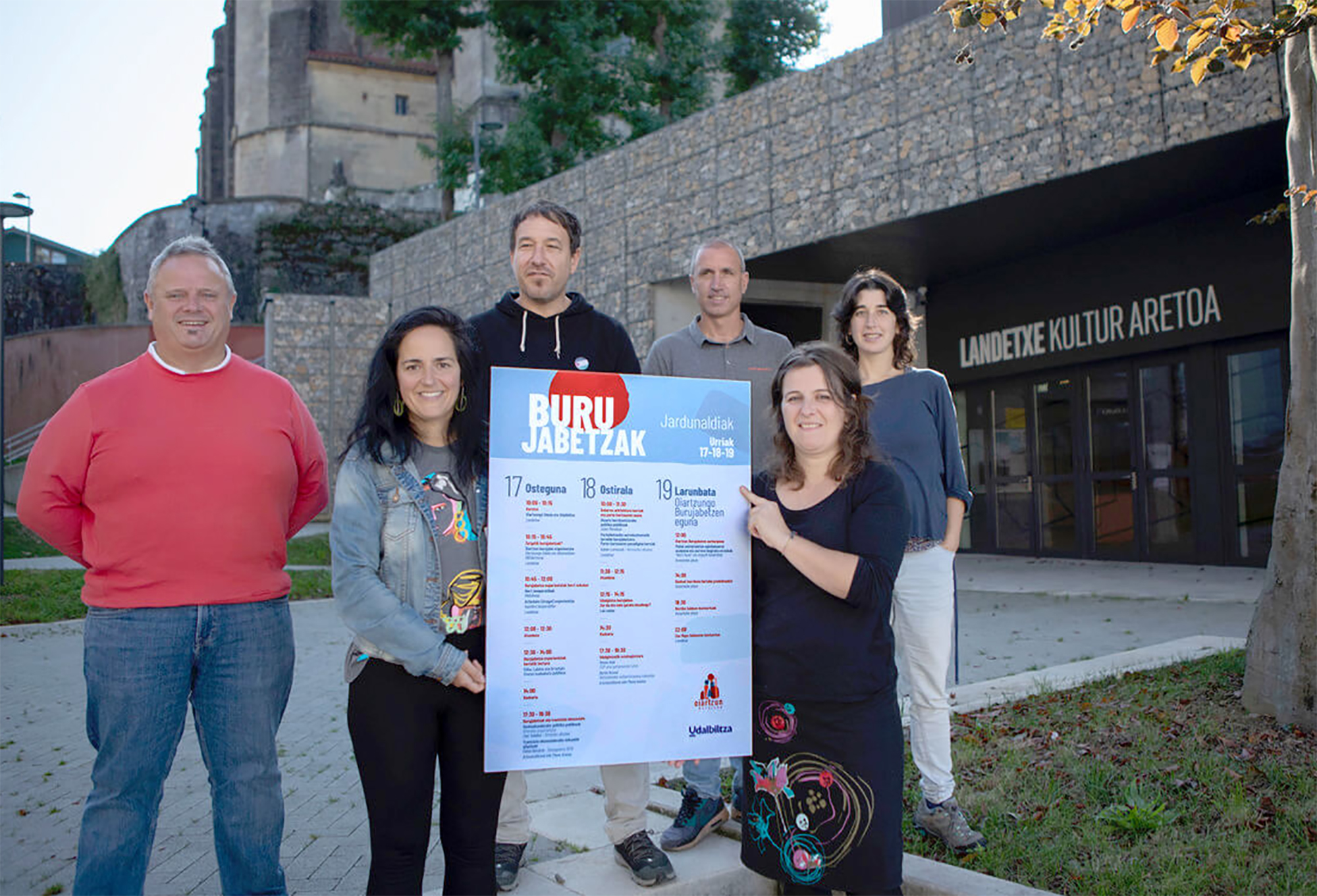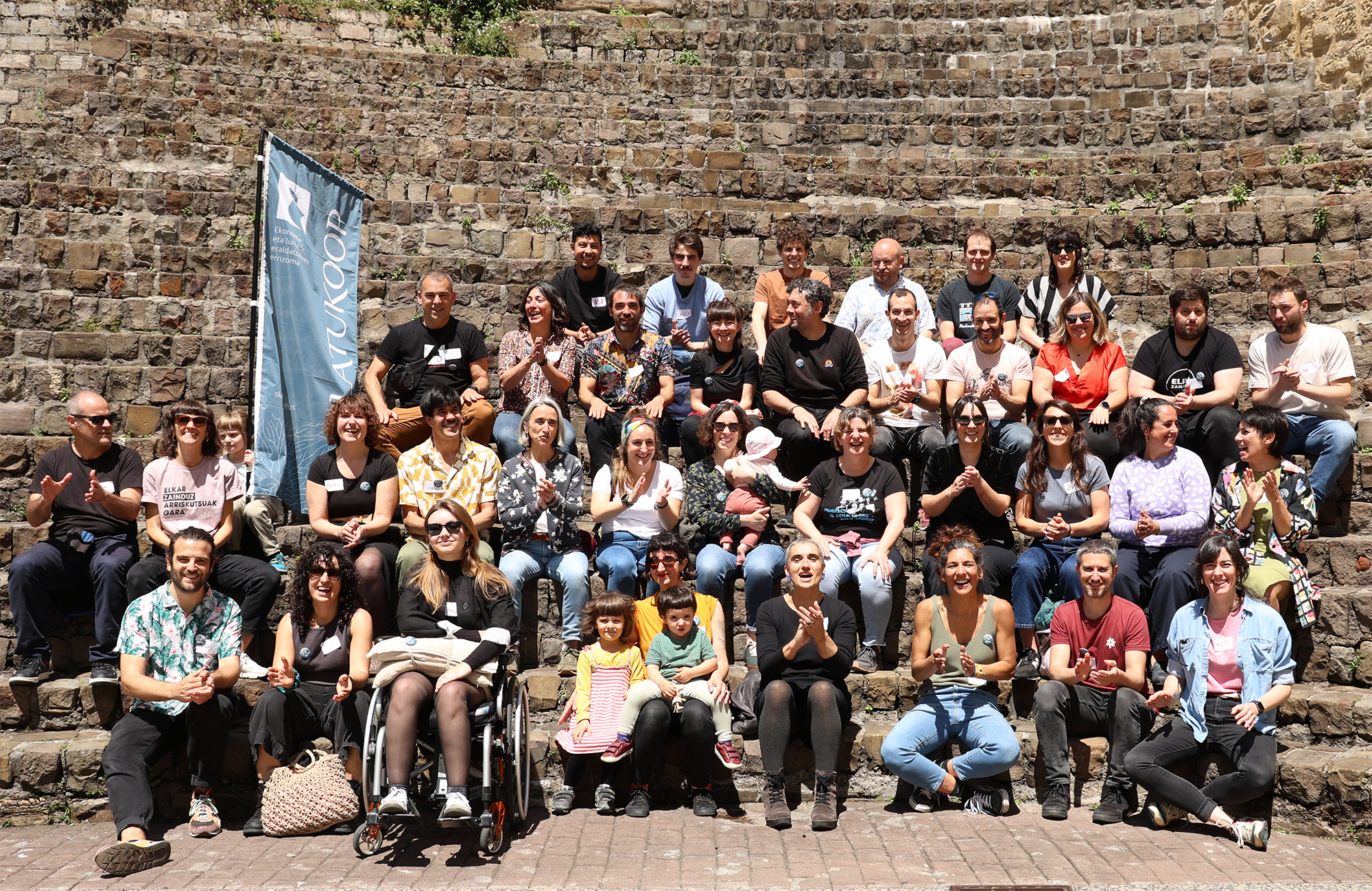Equality and solidarity as a basis
- The social organization of Marinaleda (Sevilla, Andalusia) is based on socialism, since in 1979 the CUT took power in the Town Hall of Vitoria-Gasteiz.La popular cooperative, housing in exchange of fifteen euros a month, free social services… At a time when society seeks new socio-economic models with the current crisis, these mirrors are essential.
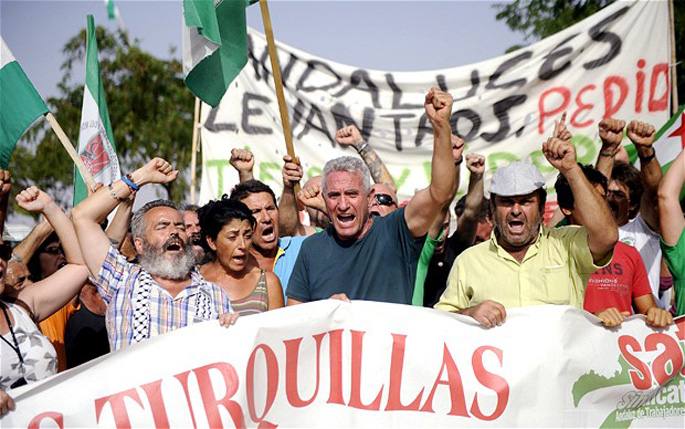
Marinaleda is like any town in Andalusia. The road to it is long kilometres of farmland. At the entrance of the village, a large restaurant, small and quiet streets, women on the doors of white houses with slippers and aprons, a dark and colored park in the heart of the town… Marinaleda seems to be like any Andalusian town.
In fact, the visitor will be launched by the people and Against capital, social war! (Against capital, social war) will read on a wall, continue and until victory always! You'll see a big one. The walls of Marinaleda are decorated with drawings made with the support of everyone. He who approaches the place will observe the street gazetter and look like a dictionary for revolution: Fermin Salvochea, Plaza 1 de mayo, Ernesto Che Guevara, Ghandi, Salvador Allende, Solidarity, Fraternity, Equality, Avda. The European Parliament, the Council and the Commission have taken the view that the European Parliament should be involved in the process of European Union, and that the European Parliament should be involved in this process. Marinaleda is like any town in Andalusia, but it is also a rebellious village of day laborers.
Assembly people
Located in the province of Seville, it has only 3,000 inhabitants. Since 1979, the mayor has been Juan Manuel Sánchez Gordillo. Juan José Sancho González, the youngest member of the Workers Unit Collective (CUT), states that Gordillo is the Andalusian casual worker and leader of the humble people: “He has always fought for the rights of the people and he is admired by the citizens.” Currently, the Consistory consists of nine CUT councillors and two PSOE members, a party belonging to the United Left.
Esperanza del Rosario Saavedra Martín, a member of the City Council and a worker of the local School of Children, defines the socioeconomic system of Marinaleda as a system that allows all citizens to meet their obligations under equal conditions: “It may not be the most appropriate, but it is the most dignified system that can be achieved within the current capitalist system.”
Neither the mayor nor the councillors are paid for the work of the City Hall. Saavedra has made it clear that they did not enter the consistory to enrich themselves, but to work for the people and the people. He says that if the mayor and the councilors charged it they would not be able to do the current performances: “It is striking that in these times when councilors, mayors and ministers steal everywhere and everywhere, we, not only do not steal, do not take anything for the municipal work. I think it’s an example to follow.” The United Left already has an agreement in its statutes; every Member who arrives in the Andalusian Parliament continues to pay the same salary as before and the remaining money is forcibly distributed in the party.
In Marinaleda there is “all democracy”. Everything is decided by assembly. They are common once a week and citizens are alerted by public address in a van. Some 200 people come together to make regular decisions, but when it comes to rights mobilisations or new job sharing, some 600 people are involved. Sancho considers that this is a “significant percentage” depending on the number of inhabitants of the municipality.
Grants: Banks and citizens are not?
The main criticism of this model of popular organisation is that they live thanks to the support of the Andalusian Government and the Government of Spain. On the contrary, Saavedra says that the money should be taken from those who have it and not from the poor. For this reason, no taxes have been raised since their arrival at the City Hall. For example, Herriko Tabernas only has a tax of EUR 12 per month.
In fact, citizens only pay 1.7% of Marinaleda’s budget. "We have to get money out of the administrations and the government has to be forced to give subsidies to the citizens, as it gives to the banks. We have struggled for many years to get those subsidies,” Saavedra claimed. The councilor says that a municipal financing law is necessary, but that is not in the interests of the Government of Spain: without money the municipalities are not to carry out the policy that they want to be independent.
Marinaleda's most well-known and striking performance is that of social housing. For fifteen euros a month, any citizen or citizen can have a home. The City Hall places soil, material and masons and offers the owner of the house or its surroundings the possibility to work in the construction of the house. He takes half of his salary and pays the house with the other half. The only requirement is to pay a fee of EUR 15 per month for 125 years, a total of EUR 22,500.
These houses are owned by the City Hall, so people living in them cannot sell them or rent them. “This is not a problem if you see housing as a right of every human being and not a speculative good. In this country, the mortgages of a thousand euros are gages that no one knows,” says Sancho.
Joaquín Saavedra is a citizen who lives from birth in one of these social housing and considers an unbeatable system: “Any housing has everything it has and does not have the responsibility of the mortgage.” Saavedra explained that if in the rest of the localities this housing system is not implemented because it does not report benefits and, therefore, they are not interested.
However, the crisis has also affected Marinaleda, where citizens are moving very intensively against the current situation. Proof of this are the marches organized last summer or the “robberies” in the Mercadona supermarkets that became so known.
Today, there is no “total employment” as in years before the crisis, but 16% unemployment; but in Andalusia, 36% of the population is unemployed. “It is a large number of unemployed, but in spite of that there is no citizen who has been unemployed for two years, or who runs the risk of being evicted from home, or who lacks the money to eat. We share the work with each other, helping each other,” says Sancho.
Humoso, the base of the village
Marinaleda's peasants have always fought for private property and for their rights. In 1977, with the creation of the Workers Union of the Camp (SOC), trade union activities multiplied, and in the 1980s, efforts to recover the lands of the Duke and Landowner of the Infantado multiplied. At that time, all the inhabitants of Marinaleda met and were going to occupy their lands, until they were thrown by their guardians. The next day, however, they would come back, and so on for several years, until the owners managed to reach an agreement.
Despite the hard days, Rosario Saavedra, the current councillor of the City Hall, remembers them with satisfaction. Thanks to the land obtained in that long struggle, today the Humoso cooperative, “indispensable for the survival” of the citizens, is underway. However, Juan José Sancho gives us a revealing fact: even today most of the Andalusian lands remain in the hands of the Duke of Infantado and the Duchess of Alba.
In Marinaleda, the day laborers are the most dependent on the Humoso cooperative. The cooperative is concerned with the primary and secondary sectors and work is now under way to expand the tertiary sector. According to Manolo Martín, a member of the cooperative, it is a question of developing the sale by the cooperative itself, since those who market it usually take most of the money. The land is divided into cultures of different times, so that it is a work throughout the year in the workshop. Beans, artichokes, peppers, beans and garlic are put in preserves and with olives oil is made again. “Mercadona is one of our biggest shoppers, we sell him large quantities well and yet he has denounced us for the case of the cars we supposedly steal from them,” explains Martín. He complains that there are people who look at the cooperative with “magnifying glass”: “If they haven’t closed it is because they haven’t been able to.”
In the times of full performance some 500 workers work in the cooperative and all have the same salary, 1,200 euros a month, working six and a half hours a day from Monday to Saturday. Decisions are made between all workers through weekly committees. “The cooperative’s goal is not to accumulate capital, but to create new jobs and invest in the company with the profits that are made,” says Martín. On the other hand, if a member decides to leave the cooperative, he has no right to the company’s actions and another citizen enters directly. Martín stresses that at least one member of each family works in the cooperative: “The agricultural industry is the only solution for Andalusian day laborers. Before the creation of the cooperative, most of the population had to emigrate, there was only work in the camps for two months.”
However, everything is not perfect in the Marinaleda ecosystem. Juan José Sancho studied engineering at the University of Seville, but few have attended university like him in the village. “As they know they’re going to have a job in the cooperative, they don’t see the need to go to college,” says the CUT member. On the other hand, it considers that among young people there is not the same spirit of struggle as before.
The anthropologist Félix Talego Vázquez resided in Marinaleda and worked with the other day laborers for a year. 1996 Casual Culture. He published the book People's Power and Messianic Leadership, an in-depth thesis about Marinaleda's system. It defines it as a system based on equality and solidarity, with components of Marxism, Christianity and anarchism. The report highlights the achievements of the system, but also the weaknesses, as, in his words, not all citizens participate in the same way in decisions. According to Talego, the leader of the entire system is the charismatic leader, Juan Manuel Sánchez Gordillo.
– Haur eskola, jantoki eta guzti, hilean 15 euro.
– Eskolako jantokia, hilean 2 euro.
– Igerilekuan 50 bainu hartzeko bonua, 3 euro.
– Gimnasioa, hilean 2 euro.
– Wifia doan herritar ororentzat.
– Etxerako laguntzak doan adinekoentzat eta menpekotasunen bat dutenentzat.
– Zaharrentzako egoitza eta zaintza doan.
– Lan-formazio tailerrak doan.
– Egun seinalatuetako herri afariak doan (aurten ez krisia dela eta).
Nortasuna Sarean jardunaldien 10. edizioa egingo dute asteazken honetan Donostiako San Telmon, KomunikaziONA bideguruatzean izenburupean. Egungo komunikazio joerak aztertu eta "alternatiba osasuntsuagoak" topatzen saiatuko dira. Hainbat hizlari gonbidatu dituzte, euren... [+]
Gasteizko Eraman kooperatibak banaketa “era jasangarri eta etikoan” eginez bertako komertzioa bultzatzeko helburua du bere sorreratik, Arabako hiriburuan eta hango bizilagunengan pentsatuta. Hainbat ekimenetan parte hartzen du, horien artean ikasturte honetan egiten... [+]
Gure lurraldeetan eta bizitzetan sortzen diren behar, desio eta ekimenen inguruan gero eta gehiago entzuten dugu harreman eta proiektu publiko-komunitarioak landu beharraz, eta pozgarria da benetan, merkaturik gabeko gizarte antolaketarako ezinbesteko eredua baita. Baina... [+]
Budgets and the closure of annual accounts are nothing more at this time, from the domestic economy to most of the socio-economic spaces that we share. Large companies have begun to extract calculators and implement major plans for 2025. Small and medium-sized institutions and... [+]
I write these lines the day after the elections to the European Parliament, the dark times, the triumph of the Reactionary International in the elections to the European Parliament. It was already in advance and it is the confirmation of the conservative phase we live in, but it... [+]







